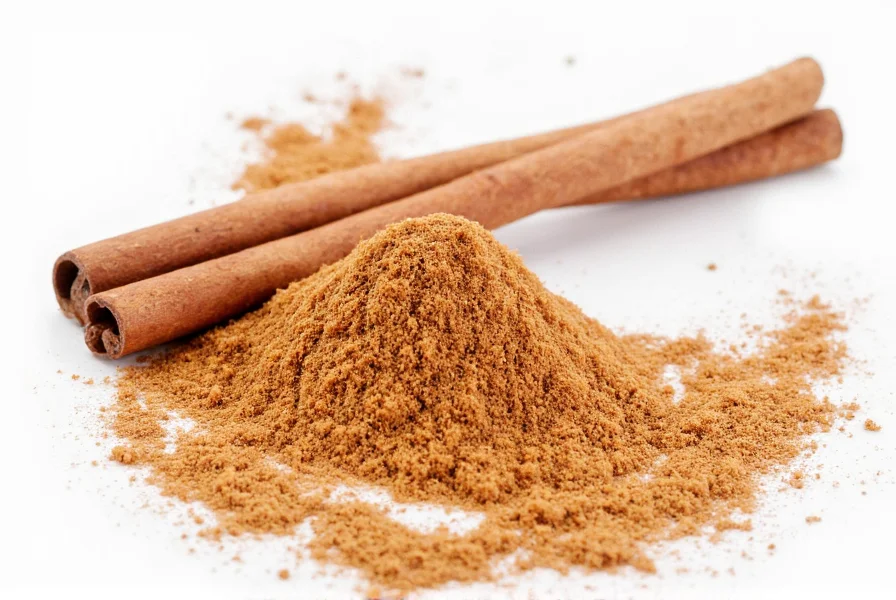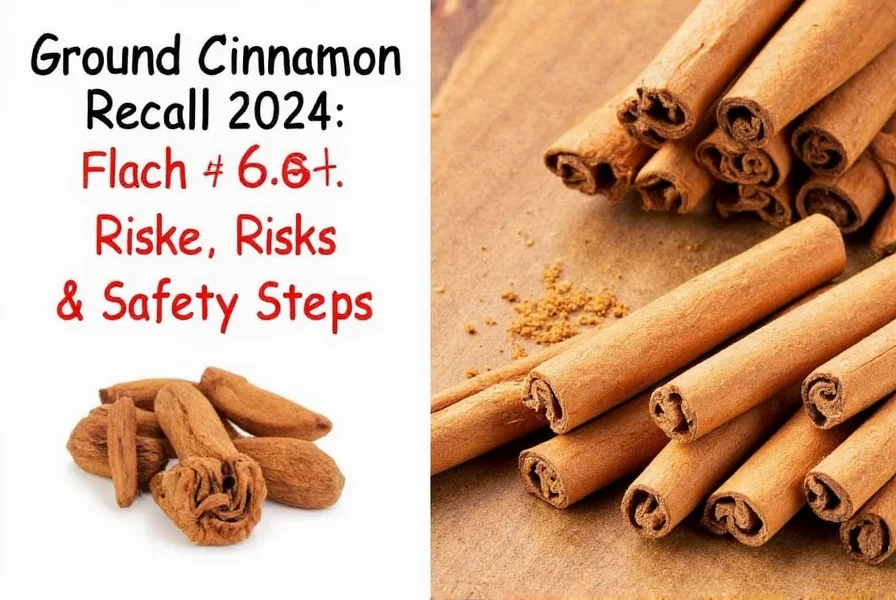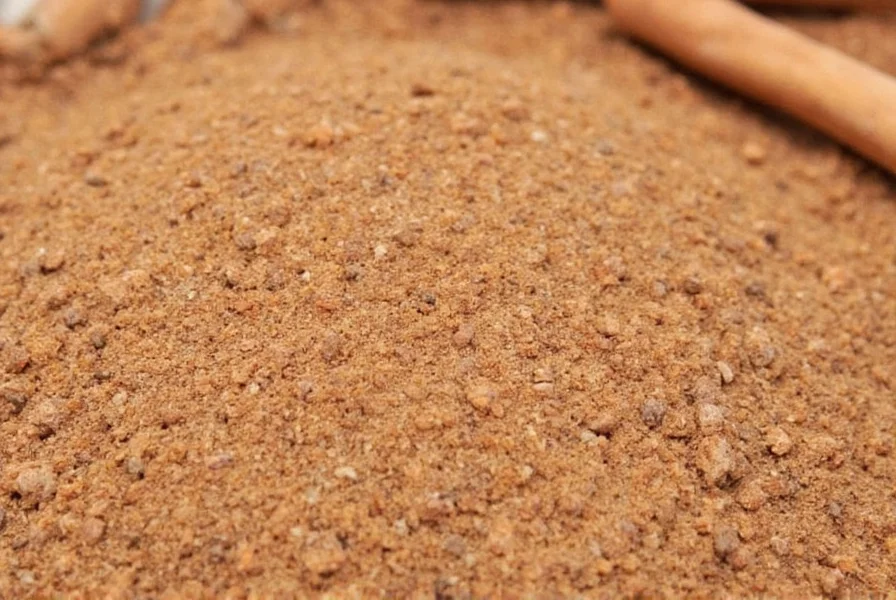Recent ground cinnamon recall developments have raised significant health concerns across North America. The U.S. Food and Drug Administration (FDA) and Centers for Disease Control and Prevention (CDC) have expanded their investigation into lead contamination in imported ground cinnamon products. This ongoing ground cinnamon recall 2024 situation affects numerous retail brands and private label products sold in major grocery chains.
Current Ground Cinnamon Recall Details
As of the latest update, the recall includes specific lots of ground cinnamon products distributed between January 2023 and June 2024. The primary concern is elevated lead levels exceeding the FDA's allowable limit of 0.1 parts per million (ppm) for children's food products. Some tested samples contained lead concentrations as high as 3.4 ppm, posing serious health risks, particularly for children and pregnant women.
| Brand Name | Affected Lot Numbers | Best By Dates | Package Sizes |
|---|---|---|---|
| McCormick Ground Cinnamon | L4358503-L4358510 | Best By 03/25-09/25 | 2.09oz, 3.01oz, 5.3oz |
| Badia Ground Cinnamon | B240101-B240615 | Best By 01/25-06/25 | 1.76oz, 3.52oz |
| R&B Food Specialties | 24001-24180 | Best By 01/25-07/25 | 16oz, 32oz |
Health Risks of Lead-Contaminated Cinnamon
Consuming ground cinnamon with elevated lead levels presents serious health implications. Lead exposure, even at low levels, can cause irreversible neurological damage in children, including developmental delays and learning difficulties. Adults may experience cardiovascular problems, decreased kidney function, and reproductive issues. The cinnamon lead contamination issue is particularly concerning because cinnamon appears in many children's foods, including cereals, baked goods, and flavored snacks.
The CDC warns that symptoms of lead poisoning often don't appear immediately, making the cinnamon recall health risks difficult to detect without testing. Chronic exposure to low lead levels can accumulate in the body over time, causing long-term health complications that may not manifest for years.
How to Check If Your Cinnamon Is Recalled
Consumers should follow these steps to determine if their ground cinnamon products are part of the current recall:
- Locate the lot number and best by date on the product packaging
- Cross-reference with the official FDA recall list available at fda.gov/cinnamon-recall
- Check for physical characteristics: recalled products often have a distinctive reddish-brown color
- Verify the country of origin—most affected products were imported from specific regions in Asia
- Use the FDA's smartphone app to scan product barcodes for instant recall verification
Many consumers searching for how to check if my cinnamon is recalled don't realize that private label products from major retailers may also be affected. Store brands from Walmart, Kroger, and Target have issued separate recall notices for specific cinnamon-containing products.

What to Do With Recalled Cinnamon Products
If you discover you have affected ground cinnamon products, follow these safety protocols:
- Immediately stop using the product and store it separately from other food items
- Do not attempt to cook or process the cinnamon, as heat does not eliminate lead contamination
- Contact the manufacturer for specific disposal instructions—some companies offer replacement products
- Check with your local waste management authority about proper hazardous material disposal
- Document the product details in case you need to report health issues later
The FDA cinnamon recall notice emphasizes that consumers should not flush or pour recalled cinnamon down drains, as this could contaminate water systems. Instead, seal the product in its original container inside a plastic bag before disposal.
Preventing Future Exposure to Contaminated Spices
While the current ground cinnamon recall 2024 situation remains active, consumers can take proactive measures to avoid future exposure to contaminated spice products:
- Purchase spices from reputable retailers with transparent sourcing practices
- Check for third-party testing certifications on spice packaging
- Consider buying whole cinnamon sticks instead of pre-ground powder
- Store spices in airtight containers away from potential contaminants
- Sign up for FDA email alerts about food safety recalls
Food safety experts recommend that consumers maintain a record of spice purchases, including lot numbers and expiration dates. This practice makes it easier to respond quickly to future recall notices. When shopping for cinnamon products, look for those that specify "tested for heavy metals" on the label—a growing trend among responsible spice manufacturers following this recall incident.

Official Resources for Recall Information
For the most current information about the ground cinnamon recall, consult these authoritative sources:
- FDA Food Safety Recall Page: fda.gov/food-recalls
- CDC Lead Poisoning Prevention Program: cdc.gov/lead
- USDA Food Safety Hotline: 1-888-723-3366
- Consumer Product Safety Commission: cpsc.gov
These agencies update their information regularly as new testing results become available. The FDA cinnamon recall notice page receives daily updates as additional products are added to the recall list. Consumers should check these resources weekly until the recall concludes.
Is there currently a ground cinnamon recall in 2024?
Yes, as of July 2024, multiple brands of ground cinnamon are under recall due to potential lead contamination. The FDA and CDC have identified specific lots from McCormick, Badia, and R&B Food Specialties that exceed acceptable lead levels. Consumers should check lot numbers against the official FDA recall list.
What brands of cinnamon are recalled for lead contamination?
The current ground cinnamon recall includes specific lots of McCormick Ground Cinnamon (lot numbers L4358503-L4358510), Badia Ground Cinnamon (B240101-B240615), and R&B Food Specialties cinnamon (24001-24180). Several store brands from major retailers have also issued separate recall notices for cinnamon-containing products.
How can I check if my cinnamon is part of the recall?
To check if your ground cinnamon is recalled, locate the lot number and best by date on the packaging, then cross-reference with the official FDA recall list at fda.gov/cinnamon-recall. You can also use the FDA's smartphone app to scan product barcodes for instant verification. Pay attention to the country of origin, as most affected products were imported from specific regions in Asia.
What are the health risks of consuming recalled cinnamon?
Consuming lead-contaminated cinnamon poses serious health risks, particularly for children and pregnant women. Lead exposure can cause irreversible neurological damage in children, including developmental delays. Adults may experience cardiovascular problems, kidney issues, and reproductive complications. Symptoms often don't appear immediately, making the cinnamon recall health risks difficult to detect without testing.
What should I do if I have recalled cinnamon products?
If you have recalled ground cinnamon products, immediately stop using them and store them separately from other food items. Do not attempt to cook or process the cinnamon, as heat doesn't eliminate lead. Contact the manufacturer for disposal instructions—some companies offer replacements. Seal the product in its original container inside a plastic bag before disposal, and do not flush it down drains.











 浙公网安备
33010002000092号
浙公网安备
33010002000092号 浙B2-20120091-4
浙B2-20120091-4